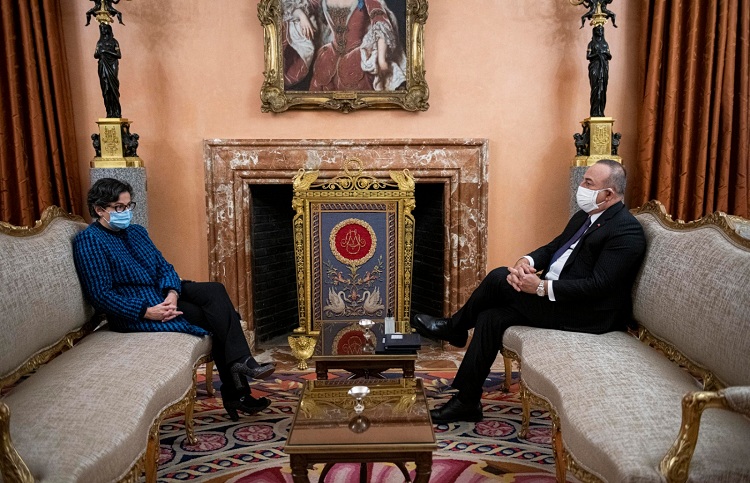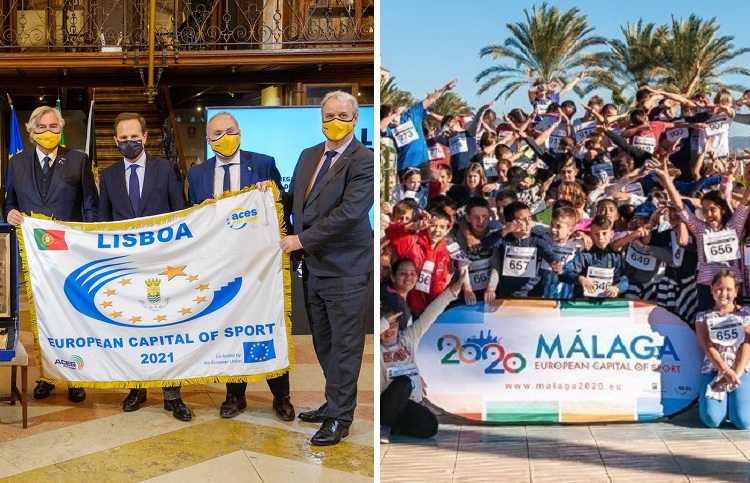Eduardo González
The Minister of Foreign Affairs, Arancha González Laya, and her Turkish counterpart, Mevlüt Çavusoglu, announced yesterday in Madrid that Turkey will be hosting a bilateral summit in the second half of this year, at which the promotion of the economic and political agenda and cooperation in the areas of infrastructure, energy and health will be discussed.
The aim of this High Level Meeting, which will be held “in the second half of the year” and which will be “preceded by a business summit”, will be “to push forward our bilateral agenda, which is rich in economic, energy, infrastructure and health issues”, said Arancha González Laya during a joint press conference after meeting Çavusoglu at the ministerial headquarters of the Palacio de Viana in Madrid.
For his part, Mevlüt Çavusoglu specified that the meeting would be held in Turkey and expressed his support for a proposal by González Laya for the creation of “mechanisms for monitoring the agreements” to be signed at the bilateral summit on infrastructure or energy. Furthermore, the head of Turkish diplomacy reported that the President of the country, Recep Tayyip Erdogan, had sent a message to the Prime Minister, Pedro Sánchez, inviting him to the summit.
Indeed, Çavusoglu was also received yesterday by the head of the executive, with whom he spoke about “the excellent relations between Spain and Turkey, strategic partners and allies within NATO”, as reported by Moncloa. During the meeting, the Turkish minister thanked “the efforts of the President of the Government in favour of a solution through dialogue in the Eastern Mediterranean and his commitment to developing a positive agenda with the European Union, which has been included in the conclusions of recent European Councils”.
In this regard, González Laya said at the press conference that Spain’s objective is to promote relations between the EU and Turkey “based on a positive agenda” and which includes aspects such as “the modernisation of the customs union, responses to Turkish requests for visas and joint work on migration”. The minister also welcomed Turkey’s “de-escalation” with Greece and defended “wholeheartedly” a “negotiated solution” regarding the division of Cyprus, while calling for “compliance with the decisions taken by the European Councils” on the crisis in the Eastern Mediterranean, “above all the calls for dialogue and cooperation and the avoidance of measures and provocations”.
For his part, the Turkish minister recalled that “Spain has always supported the process of accession to the EU” and warned that “Turkey needs the EU, but the EU needs Turkey more” because “if the EU wants to be a global player, it must count on Turkey”. Likewise, he assured that his country has done “everything it had to do” in terms of migration, an issue that must be “shared with the EU”, and he acknowledged that Turkey “is not concerned” about possible European Union sanctions. “What concerns us is how we can solve the problems and improve relations” with the EU, he said. In any case, “if there were sanctions, they would not affect us much”, he said.
Venezuela
Furthermore, both the Turkish and Spanish ministers called for a negotiated solution to the crisis in Venezuela through dialogue between the government and the opposition and with the support of the international community. Çavusoglu warned that “the crisis is not going to be resolved with the interventionism of third countries”, and said that his government had taken advantage of its “very close relations” with the Nicolás Maduro regime to try to mediate between the parties, efforts which, he said, had led to the “release” of the opposition.
For her part, González Laya insisted that “Spain’s position on Venezuela is that of the 27” and announced that the next EU Foreign Affairs Council, scheduled for 25 January, will analyse how to support a political process in which “Europe must not be an actress, since dialogue must be between Venezuelans”. “Of course, we are in contact with all the political actors, from the opposition and from the regime”, continued the minister, who once again avoided the question of whether Juan Guaidó is still being considered as interim president. “Spain is working with all the Venezuelan opposition, among which Juan Guaidó adds a legitimacy for being the president in charge of the last electoral process recognised by Europe, which were the previous parliamentary elections”, she said.






